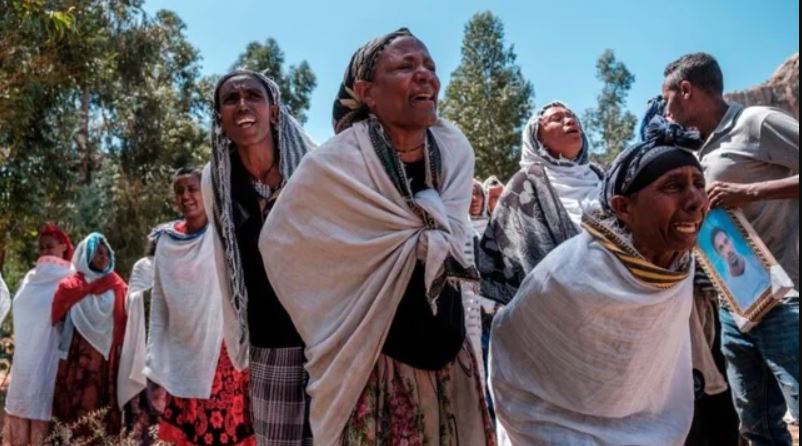
Correspondence from Dr. Merhawit Atsbha, internist and faculty member, of Ayder Hospital documents how the lack of medication and services available to treat diabetic patients in Tigray has lead to horrific suffering and loss of life.
Here is his letter to the world:
As to diabetes management we have-not received any medication after June 2021. We have so far been using the stock we had before that and starting from September we have started using expired po anti diabetic drugs. And our treatment has recently focused on preventing acute complications like DKA and HHS. We have stopped being concerned about good glycemic control and preventing chronic complications. We also mostly do not discuss about diet with patients as they have to eat what is available.
From the report we got from our pharmacy head we have learned that we are left with 150 vials of NPH and few strips of glibenclamide. Metformin has been out of stock for two weeks. The sad part is we even have run out of the expired drugs. With the limited amount of drugs that we have we will be able to serve for only 2 to 3 days.
To make things worse we have run out of IV fluids so we are treating even moderate and severe DKA with free water.
Thinking about the more than 10,000 patients in Tigray and more than 2500 patients in Ayder we are very sure that we will be flooded with acutely sick patients in the coming weeks but we will not be able to help them.Therefore, we beg you all to be the voices of the voiceless patients and physicians here. And find a means to help our patients before it is too late.
Thank you for the efforts made so far.
The Tigray Regional Health Bureau system and Mekelle University Ayder Hospital had for many years made tremendous progress in the care of Tigrayans with diabetes mellitus. Providing medications, treating complications, providing community health education on self-care and prevention were all important factors in improving life expectancy and quality of life.
The prevalence of diabetes mellitus in Ethiopia is estimated to be somewhere between 14% to 18%. With medication, diet control, and education teaching the patient self-care most diabetic patients can lead productive and near normal lives but without treatment complications like diabetic coma, peripheral vascular disease, and heart disease cause severe disability and early death.
In February 2021, Ethiopian Minister of Health Lia Tadesse lied to Reuters news agency when she said supplies were being sent to Tigray for the care of diabetics in response to news reports that people with diabetes were dying at home. Under the Ethiopian occupation no significant supplies were ever received. It is suspected that many shipments were taken instead to Eritrea.

